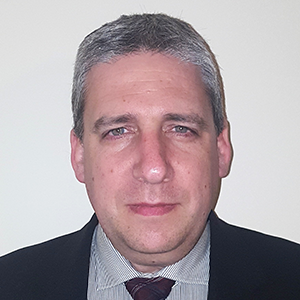Modernizing clinical trials is the U.S. FDA priority. As more diseases are being redefined based on genomic subtype, researchers have more novel targets and more opportunities to precisely modulate or even repair the basic biological drivers of illness. Precision guided medicines can demonstrate strong efficacy signals in early clinical trials, including in trials where small groups of patients are selected based on biomarkers or other criteria suggesting they’re likely to benefit. These trials can potentially allow earlier regulatory assessment of benefit and risk. When the FDA can make a positive approval decision, patients can gain earlier access to important new therapeutic options. To take advantage of these innovations, the FDA is also seeking new ways to modernize its approaches to accommodate these novel opportunities.
Session Chair Profile
Biography
Stanley M. Huff, MD, is board certified in Clinical Pathology, and in Clinical Informatics. He has worked in the area of medical vocabularies and medical database architecture for the past 25 years. He is currently a fellow of the American College of Medical Informatics, a co-chair of the LOINC Committee, a co-chair of the Health Level 7 (HL7) Clinical Information Modeling Initiative (CIMI), the chair of the Healthcare Services Platform Consortium (HSPC), and the immediate past chair of HL7. He is a former member of the Office of the National Coordinator for Health Information Technology (ONC) Health Information Technology (HIT) Standards Committee. Dr. Huff received his BS degree in Chemistry from Brigham Young University and his MD degree from the University of Utah.
Speaker Profile
Biography
James Tcheng is an interventional cardiologist and informatician, and serves as Director of the Duke Cardiovascular Databank, Director of Performance Improvement for the Duke Heart Center, and CMIO of the Duke Heart Network. His work focuses on harmonizing the clinical definitions, data constructs, and associated informatics of cardiovascular clinical terminologies across academia, regulatory agencies, the life sciences industry, professional societies, and standards organizations, to improve the capture, communication, interoperability, and analysis of healthcare information. He is a key investigator of the FDA Medical Device Epidemiology Network (MDEpiNet) and principal investigator of the Pew Charitable Trusts-sponsored project, Improving Healthcare Data Interoperability. He previously chaired the American College of Cardiology Informatics and Health IT Committee.
Talk
MDEpiNet: The Journey to Real World Evidence
Despite the federal electronic health record program, real-world clinical data largely remains locked in analog documents. This talk will describe the Medical Device Epidemiology Network (MDEpiNet), a public-private partnership that is leveraging the Coordinated Registry Network paradigm for the capture of high-quality clinical data for evidence generation.
Speaker Profile
Biography
Dr. Waters is the team lead for the multi-agency/stakeholder Systemic Harmonization and Interoperability Enhancement for Laboratory Data (SHIELD) effort and the Real-World Evidence representative for the Office of In Vitro Diagnostics and Radiological Health (OIR) at FDA. He is an interdisciplinary scientific reviewer for a wide range of medical devices, with a focus on diagnostics, instrumentation and software. He leads efforts to build laboratory data infrastructure for a National Evaluation System for healthcare Technology (NEST) under the Medical Device Innovation Consortium (MDIC). Dr. Waters also participates in several data interoperability working groups, to implement infrastructure and improve lab data interoperability. Dr. Waters received his PhD from the USC Department of Molecular and Computational Biology, conducted his postdoctoral research at the National Institute of Standards and Technology (NIST) and was a Research Fellow for the National Research Council (NRC). He has over 20 years of experience in microbiology and molecular biology.
Talk
SHIELD - Harmonizing Standards Application To Accelerate Innovation
Data incompatibility is an impediment to innovation, a source of massive financial burden and a direct cause of patient injury/death. This talk will discuss the iterative proactive strategy of the SHIELD public-private partnership to harmonizing the application of laboratory data standards to enable cross-institutional interoperability across the healthcare ecosystem.













